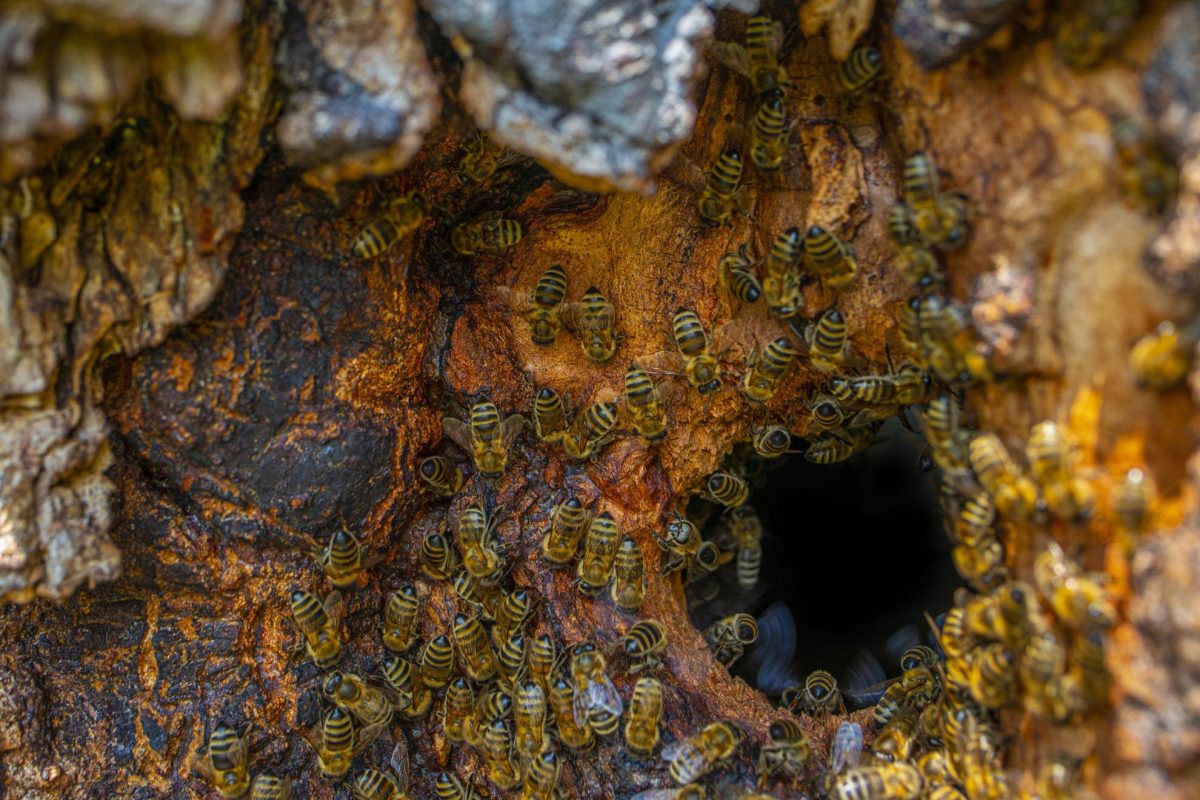BeesMax’s sole aim is to reverse the decline of the UK bee population. BeesMax is a not-for-profit organisation and works with a number of organisations to fulfil its aim.
Sustainable Stewardship within our modern-day culture
Our ethos towards beekeeping is similar to the vegan principles. We do not use any manufactured disease control chemicals.
We have strived to develop methods of bee husbandry that require minimal interference, as natural a hive as practicably possible but with maximum access to everyone.
We emphasise sustainable stewardship and not ownership. We do not own the bees as livestock on a farm. You cannot own bees, they are nomadic and if they choose to leave us, they will move on without hesitation.
Usually, bees leave their hive via swarming but they are known to just up sticks, take everything and go without rhyme or reason.
Corporate involvement is key to our success.
It is crucial to us that the corporate clients’ staff and their CSR programmes are complementary to our ethos of regeneration and renewal. We believe big businesses must underpin these values.
We rehouse urban honey bee swarms back into the UK woodlands. Members of the Country Land and Business Association are key to achieving this goal.
Report A Tree Bee Location BOOK A TREE BEE COLLECTIONEducation
Our IT-enabled hives offer a light touch approach for everyone to remotely observe without disturbing the bees.
Using these browser screens are like seeing straight through into the body of the colony with X-ray vision.
Regeneration and working with the swarming process
We encourage the swarming process as the nature takes its course during the year. Our hive management does not deny the bees their own methods of choosing their own queens. We do not clip the queen’s wings or prevent her from choosing her own drones to mate with.
Hives frequently change their minds about which eggs to use to raise queens, when to actually allow a new queen to hatch and how many will be raised. Sometimes they allow 2 queens to live harmoniously together and allow the old queen to see out her days before the new queen takes over and no swarms are issued. Nobody can understand the seemingly alternative way of living but again natural selection ensures survival of the fittest prevails at all times.
Our up-cycled polystyrene community housing provides the space to house the daughter colony left behind as the parent colony swarms, gives birth and divides like the human cell divides immediately after conception. The dividing colony, which we see as a swarm, leaves their established body behind for the daughter colony to live in and grow.
Developing connections between the beekeepers and the colony
Our whole approach to managing and opening the colony is that of minimal interference and only then for a specific reason. This helps cultivate a state of cooperation between the beekeeper and the bees and maintains a docile state of mind within the colony.
Our remote access IT systems give us a better understanding of the colonies’ hive mind. We rarely use smoke and view the use of smoke as a failure on our part. If you go in uninvited and invade the personal space of a wild animal, what would you expect them to do but get angry?
The BeesMAX upcyling of polystyrene boxes compared to the manufactured wooden frames hive
Our low-cost community housing scheme uses recycled polystyrene boxes that would have otherwise gone to landfill. There are manufactured wooden frames within the boxes but only part filling the space maintaining unmanaged areas of wild comb.
We say small is beautiful and less is more. We provide only some wooden frames as a basis from which wild comb is encouraged to grow below. You can see within our hives both the modern regimented man-made frames and the natural way the bees prefer to build the comb.
Wild honey bees in the UK typically live within the confines of a hollow tree encouraging medium to small sized colonies which only remove a proportion of the pollinator food resources within the 3-mile radius bees fly to collect their food.
Our colonies are not grown in ever-expanding, manufactured wooden boxes. This means the colonies are smaller and are less likelyto exhaust the local area of pollinator foods.
BeesMax’s manufactured wooden hives
It is only since the multi-framed, stackable, manufactured wooden hive was invented that we encouraged mega-sized colonies which hoover up any food resources they can find, leaving much less for the wild pollinators. The manufactured wooden hive provides the space to encourage our bees to go on collecting until they die with exhaustion. During the peak honey flows, a worker bee may only last two weeks. In the autumn and winter, they need to live for many months.
Would you like to know more?
We would love to explain more and go through the many benefits of having a Junior Hive on your site. You are likely to have many questions and concerns, but we are here to fully explain what is involved and how we help make the process as easy as possible.

